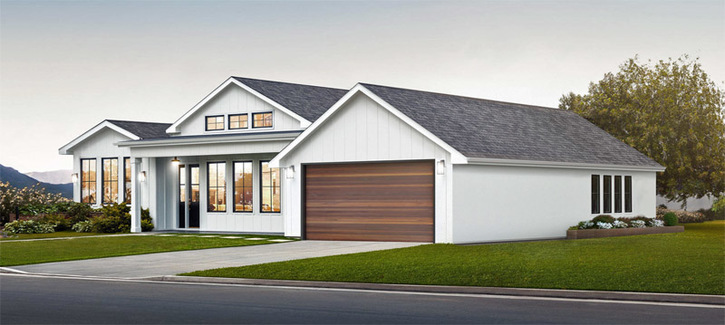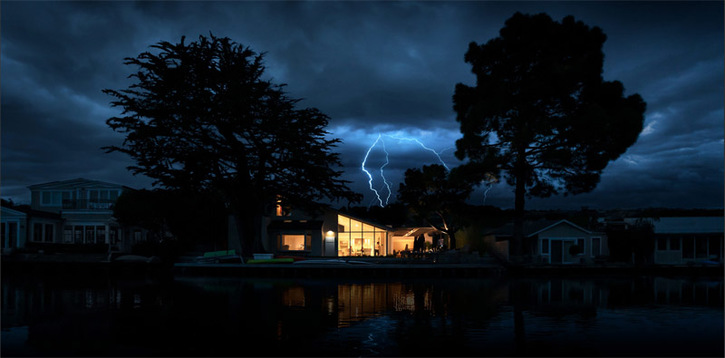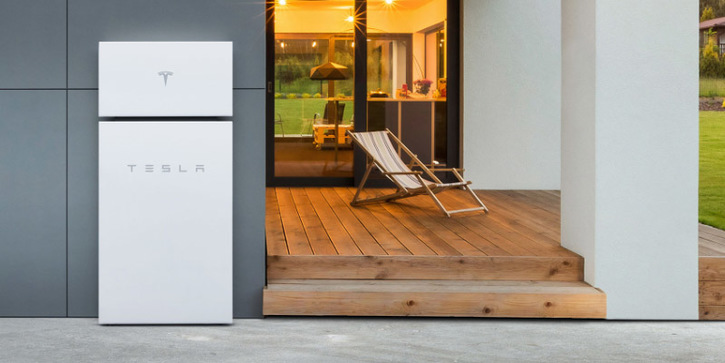Dear Expert,
If I have Tesla solar panels, will I still have power during a blackout or power outage?
-Sam in San Francisco
Hi, Sam,
The answer is "it depends." Tesla solar panels - like any other solar panels - are a great way to reduce your carbon footprint, lower your monthly electric bill, increase your home's value and alleviate stress from the electrical grid. But whether or not you'll still have power during a blackout or power outage depends on what type of solar power system you have installed in your home.
A standard "grid-tied" solar power system has solar panels connected to one or more power inverters. These inverters convert the DC power generated by the panels into AC power that can be used to power your home. In a grid-tied solar system, whatever power you need during the day comes from the solar panels and if you need more, it comes from the grid. If you generate more electricity than you use, then the power is fed to the grid for your neighbors to use, and your electricity meter spins backwards (cha-ching!). When night falls, and your panels stop producing electricity, any power you need comes from the grid.
A grid-tied solar power system is disabled during a blackout to prevent utility workers from being injured when they believe no power is running through the lines. So if you have a standard grid-tied solar power system, you will not have power during a blackout. Tesla did sell standard grid-tied systems before 2021, so if you have an older Tesla solar panel system or solar roof, it may be a basic grid-tied solar power system.

An "off-grid" solar power system combines solar panels with stationary storage (batteries). In an off-grid or standalone solar power system, your solar panels charge up the batteries during the day, and these batteries provide power to your home at night or on days without much sunshine. An off-the-grid solar power system is immune to grid failures and blackouts, because it's not connected to the electrical grid at all. But with this type of system, you are limited in that you can only use as much power as you can generate from your panels. This can be problematic if you have a long stretch of cloudy days, long periods of extreme hot or cold weather or you need to drive your electric car more than usual.
As the price of stationary storage continues to fall, another type of solar power system is becoming more popular: grid-tied solar with battery backup or "hybrid solar." As the name implies, a hybrid solar power system combines the benefits of a grid-tied system with a standalone system for the best of both worlds. With a hybrid solar power system, your solar power system is still tied to the grid, but you also have batteries which store electricity for use any time you need it, such as during a power outage or grid failure.

Hybrid solar systems cost more than standard grid-tied systems -- these big batteries still aren't particularly inexpensive. But some of these costs can be offset by government incentives, depending where you live. Also, the extra cost can be recovered over time in lower electricity bills. With a hybrid system, your batteries can be recharged not only by the solar panels, but also by the grid. Most utilities offer "time of use" plans which offer significantly lower electricity rates during off-peak hours. So if your daily power usage starts to exceed what your panels can deliver, you can charge up your batteries at night from the grid when rates are low, and use that cheap power during the day when utility rates would have been much higher.

Also, having a hybrid system means you will still have power during a black-out or system outage and you won't have to install an expensive fossil fuel-powered generator for emergencies. I should mention that in 2021, Tesla began requiring stationary storage be included in any solar power system you buy from them. So if you have an older Tesla solar power system, it may not have batteries, but since 2021, all solar panel and solar roof systems sold by Tesla include at least one Powerwall or Powerwall+ battery.
In some cases, solar panels on a homeowner's roof not only help the individual home owner in the case of a power outage or excessive demand, but they can also help power the community and prevent a power outage in the first place. In California, Tesla has enabled their customers who own Tesla solar panels and Powerwall batteries to feed power from their local batteries into the grid at times of peak electricity demand.
Solar panels charge the PowerWall batteries during the day, and that stored electricity can be fed back into the grid in order to reduce overall demand. It's a pretty cool solution as it allows homeowners and business owners with robust solar panel arrays and battery storage to become "virtual power plants," providing instant power to the grid during times of high demand. It's a new program, still in beta test. But it's already in use and helping prevent blackouts. You can read more about the program in this Business Insider article. Hopefully this capability will expand into more areas over time.
By the way, if you are interested in installing a Tesla hybrid solar power system in your own home, complete with Powerwall batteries, you can get a discount using our referral code. Use this link to order online with the referral bonus or use Tesla referral code: Christopher55570.
I hope that answers your question.
Related: